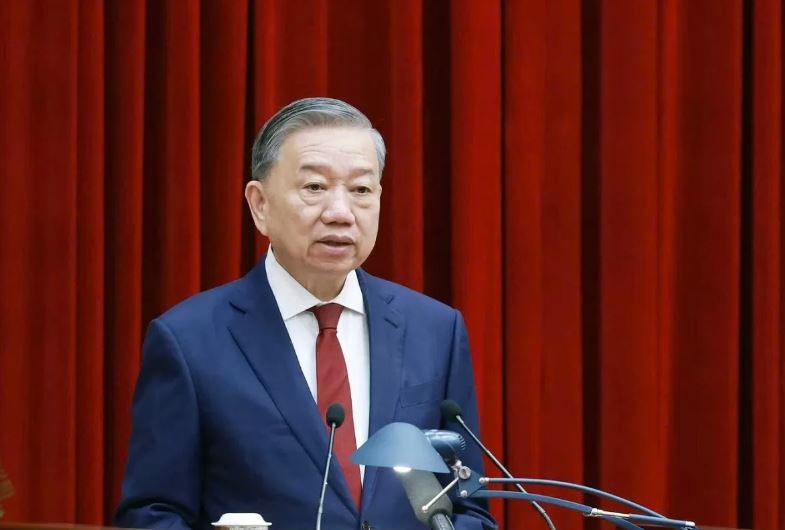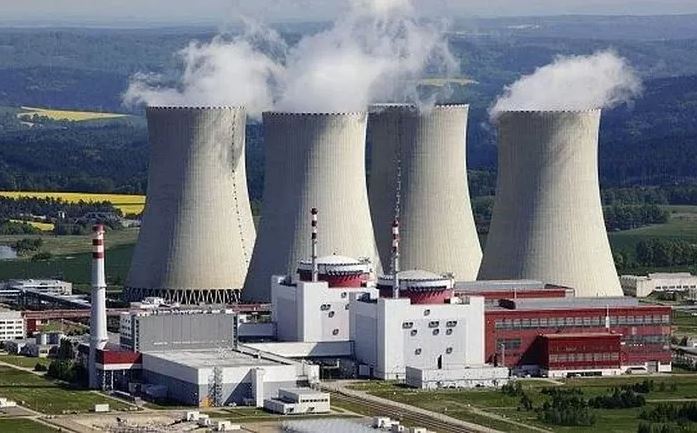The study and deployment of nuclear power in Vietnam, especially the restart of Ninh Thuan Nuclear Power Plant projects, is being considered as an important strategy to ensure national energy security and meet the sustainable economic development requirement in the current context. This decision was recently mentioned and oriented by General Secretary To Lam to contribute to building and developing an independent and self-reliant economy.
Vietnam's energy context and the urgency of nuclear power
Currently, Vietnam is facing increasing demand for electricity consumption, it is expected that the total installed capacity to be added to the power system will be about 70GW by 2030 and 400-500GW by 2050.
Meanwhile, conventional energy sources such as coal and hydropower have limited reserves and environmental impacts. Renewable energy, despite its strong development, is still not enough to sustainably and long-term satisfy the rapidly growing economy.

General Secretary To Lam giving opening speak at 13th Party Central Committee Conference on morning of November 25. Photo: Thong Nhat – VNA
Faced with that reality, at the 13th Party Central Committee Conference on the morning of November 25, General Secretary To Lam affirmed: "We see in the immediate future an energy shortage even after implementing PDP VIII, so restarting the study of the use of nuclear power today is very necessary to prepare for the future."
Nuclear power, which has proven to be a stable source of electricity supply and has competitive production costs, will be a reasonable solution to diversify electricity supplies and reduce dependence on fossil energy.
Potential and advantages
One advantage of Vietnam when restarting nuclear power is the Ninh Thuan Nuclear Power Plant Project 1 and 2, which was started in the 2010s but then halted in 2016. During implementation, the highest international standards for nuclear safety have been discussed and considered. The project locations were also carefully selected (12–15m above sea level) based on experience from the nuclear power plant incident in Fukushima (Japan), ensuring not be affected by earthquakes or tsunamis. Generation III+ nuclear technology such as AES-2006, AP1000, and ATMEA1 were prioritized with safety indicators that far exceed the recommendations of the International Atomic Energy Agency (IAEA).
According to experts, using the studied locations in Ninh Thuan to develop and build nuclear power plants in the near future is very convenient, saving time and costs in studying, surveying, and selecting locations.
Correctness in the current context
Nuclear power restarting is not only a story about energy but also has strategic significance for national security. In fact, countries such as Japan, South Korea, and China have all been increasing the share of nuclear energy in their electricity mix to cope with similar challenges.

Nuclear power restarting is not only energy story but also has strategic significance for national security. - Illustration photo (IT)
To ensure the success of future nuclear power projects, the Government needs to continue to maintain a specific mechanism, create a favorable legal corridor to attract foreign investors, promote scientific research, and develop human resources. In particular, it is necessary to form a specialized agency to manage and implement the project methodically. At the same time, it is necessary to promote communication to raise public awareness about the benefits and safety of nuclear power, minimizing unnecessary concerns.
The decision to restart nuclear power will certainly be a new step to help Vietnam both meet its increasing energy demand and fulfill its commitment to achieving net zero emissions by 2050; At the same time, it is the foundation for Vietnam to build a green, advanced and sustainable economy in the future.
Translator: Vân Ly
Share